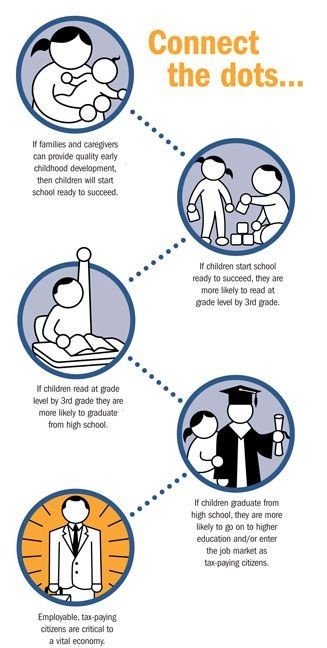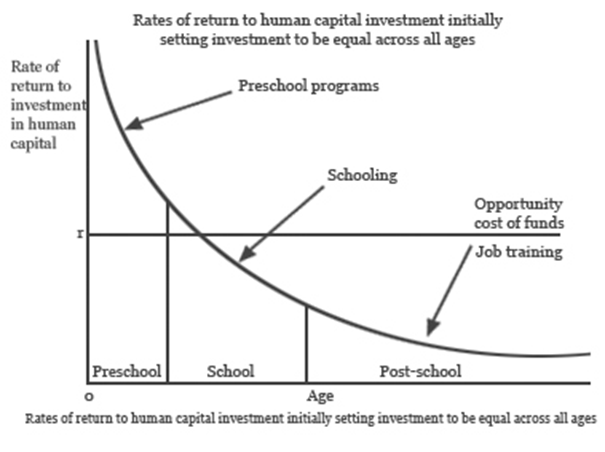 Early childhood education is a foundation for strong schools and a strong economy. It prepares tomorrow’s workforce for global competition, while ensuring that the children of today’s workers enter school ready to succeed. It’s critical to economic development. And it supports school success.
Early childhood education is a foundation for strong schools and a strong economy. It prepares tomorrow’s workforce for global competition, while ensuring that the children of today’s workers enter school ready to succeed. It’s critical to economic development. And it supports school success.
Studies show that children entering kindergarten with skills they need to succeed are more likely to graduate high school and become productive workers.
Arthur J. Rolnick Report
Additionally early childhood development is an important economic development initiative. Investing in early learning pays off with a clear Return on Investment as indicated from the Arthur J. Rolnick report:

“Early childhood development programs are rarely portrayed as economic development initiatives, and…that is a mistake.”
- Quality child care is vital for parents to be able to work.
- Quality early childhood education is key to success in school and in life.
- Helping the next generation break the cycle of poverty starts by giving young children a better start in life.
But experts say early childhood education is just as critical to building a strong economy and a strong workforce.
“Investment in human capital breeds not only economic success for those being educated, but also for the overall economy,” according to Art Rolnick with the Federal Reserve Bank of Minneapolis.
As Nobel laureate economist James Heckman says, programs targeting children from disadvantaged families have the greatest economic and social returns.
The 40-year High/Scope Perry Preschool research makes the case that high-quality early learning experiences set children up for success in school, work and life. That research shows that investing $1 in a child’s success early on saves $17 down the road, with tangible results measured in lower crime, fewer single parents, and higher individual earnings and education levels.
Quality Early Learning REDUCES
Crime Rates
Teenage Pregnancy
Welfare Dependency
Job Training Costs
Special Education Cost
Grade Repetition
Quality Early Learning INCREASES
Success in School
Graduation Rates
Workforce Readiness
Job Productivity
Community Engagement
Longitudinal studies show that increased investment in early learning means states spend less in special education and juvenile justice services. Over the long term, state and federal budgets for welfare and criminal justice systems are impacted as well.
But as high-skill, high-wage jobs demand more from workers, the children who most need the tools for success are getting the fewest.
- 46% of America ’s kindergarteners are coming to school at risk for failure, according to the U.S. Dept. of Education.
- The poorest children start school 1-2 years behind.
The Return On Investment (ROI) is clear: investing in early learning in children’s early years pays off. Heckman puts it this way: “Invest in the very young.”
Heckman argues that investments in children bring a higher rate of return than investments in low-skill adults:
After much research, Rolnick concluded that early childhood development is a much better economic development tool than other economic development schemes. “In the future, any proposed economic development … should have early childhood education at the top. The return on investment from early childhood development is extraordinary, resulting in better working public schools, more educated workers and less crime.” As Rolnick argues, now is the time to capitalize on this knowledge.
